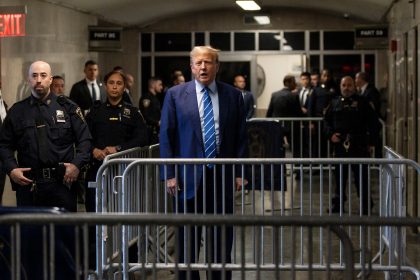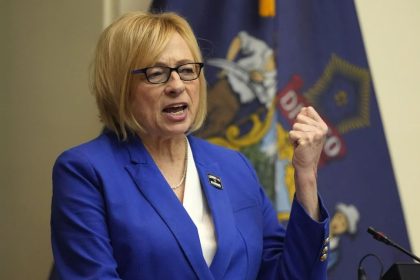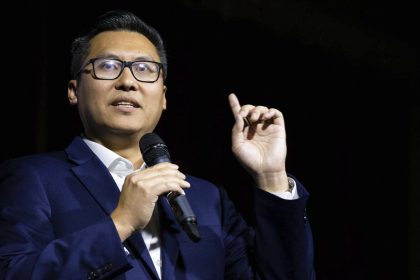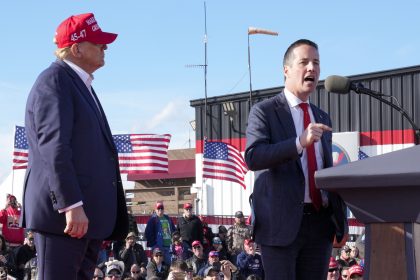Congress Braces Itself for Ruling on State Authority Over Elections
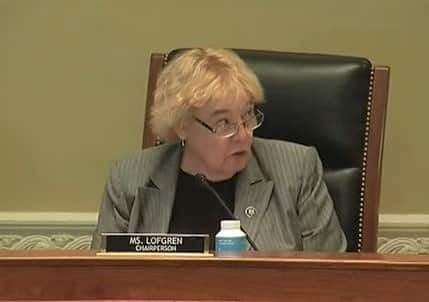
WASHINGTON — A congressional panel tried Thursday to prepare for another Supreme Court ruling that could upend conventional thinking, this time on state authority over federal elections.
Depending on how the Supreme Court rules in the case of Moore v. Harper, “That entire apparatus could vanish overnight,” said House Administration Committee Chairwoman Zoe Lofgren, D-Calif.
The Supreme Court agreed to hear the case last month to decide whether North Carolina’s courts can override the state Legislature’s discretion on voting districts. Democrats accused the state’s Republicans of gerrymandering.
A backdrop issue is former President Donald Trump’s attempt to overturn the 2020 presidential election by appealing to state officials to endorse his claim the election was stolen from him through fraud.
The “Big Lie” set off a wave of state initiatives to reform election laws, such as by requiring government-issued identification from each voter and eliminating mail-in ballots. Critics of the reform movement say it could shut out poor and underprivileged persons from the election process.
Under Article 1, Section 4 of the U.S. Constitution, known as the elections clause, states are authorized to regulate the time, place and manner of elections.
The Supreme Court in Moore v. Harper, along with the House Administration Committee, is trying to decide when states go too far in exerting their authority, perhaps imperiling fundamental principles of democracy in the Constitution.
Carolyn Shapiro, a former Illinois solicitor general and now a law professor, told the committee during the hearing Thursday that there is nothing in the Constitution to suggest the federal government lacks the power to ensure the integrity of elections.
Among measures to guard against runaway state legislatures, Congress is considering setting minimum standards for elections at both the state and federal level.
The primary example is the John R. Lewis Voting Rights Advancement Act. The pending bill would restore parts of the Voting Rights Act of 1965 that have been struck down by the Supreme Court. It would revive the Voting Rights Act’s requirement that states pre-clear fundamental changes to their voting laws with the federal government.
Other portions would grant the U.S. attorney general a right to send federal observers to monitor local elections for fairness and possible ethnic discrimination.
The legislative move in Congress set off complaints among state lawmakers about the federal government trespassing into their jurisdiction. The complaints were echoed by some Republicans during the House hearing.
“This shouldn’t be controversial,” said Rep. Rodney Davis, R-Ill., as he spoke about state election authority. “The constitution divides authority between Congress and the states.”
Eliza Sweren-Becker, voting rights counsel at the law and policy advocacy organization Brennan Center for Justice, cautioned about the “independent state legislature theory” embodied in the Moore v. Harper case.
Supporters of the theory say authority over elections should be limited to state elected lawmakers, but that courts or appointed administrators have no jurisdiction. Any conflicts between state and federal election laws must be resolved in favor of states, according to its proponents.
Most commonly, independent state legislature theory has come into play in redistricting disputes, such as the gerrymandering allegations in Moore v. Harper.
“There is a wealth of evidence rebutting this independent state legislature theory,” Sweren-Becker said.
She predicted chaos in election laws if the Supreme Court endorses the theory.
“It would be unclear which rules would actually apply,” she said. “Legislatures might try to change the rules for vote counting for example.”
The House committee appears to be departing from a hands-off approach to the separate authority of the Supreme Court as criticism mounts about the conservative supermajority’s recent rulings.
Top among them is the June 24 decision to overturn the federal right to abortion set out in the 1973 ruling in Roe v. Wade.
A day earlier, the Supreme Court expanded private citizens’ right to carry concealed guns outside their homes. The ruling that eliminated the need to prove a specific need for a gun permit followed ongoing public outrage about mass shootings this year.
Tom can be reached at [email protected] and @TomRamstack

















